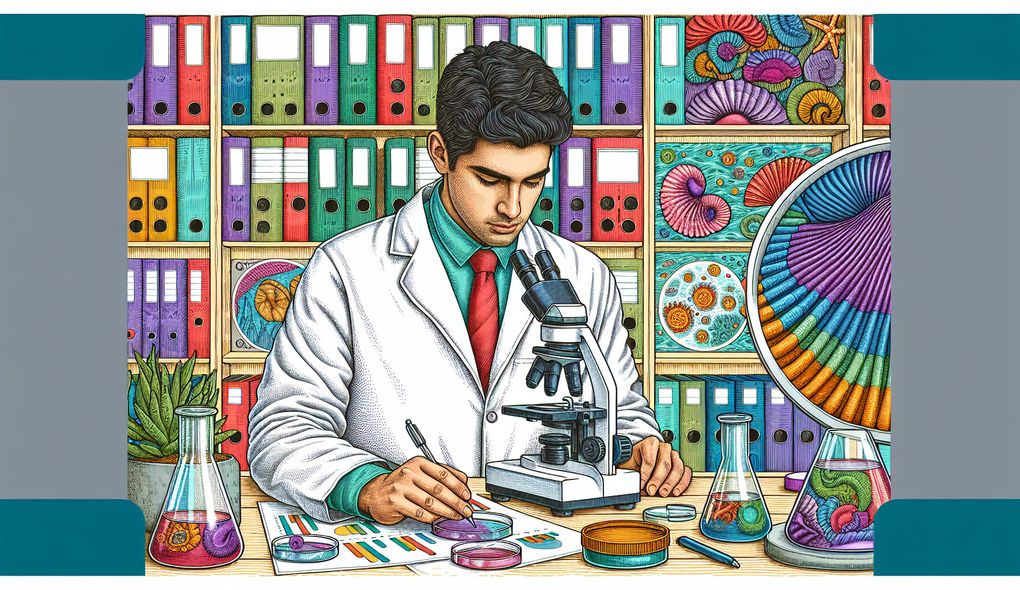25. How do you promote a culture of scientific rigor and excellence in a research team?
SENIOR LEVEL

Sample answer to the question:
Promoting a culture of scientific rigor and excellence in a research team is crucial for the success of any project. To achieve this, I would encourage open communication and collaboration among team members. This includes regular team meetings to discuss research progress and challenges, as well as encouraging the sharing of ideas and knowledge. I would also emphasize the importance of following rigorous scientific protocols and methods, and provide training and guidance to ensure all team members are equipped with the necessary skills. Additionally, I would foster a supportive and inclusive environment where team members feel valued and motivated to excel. Celebrating achievements and recognizing the contributions of individuals within the team can go a long way in promoting a culture of scientific rigor and excellence.
Here is a more solid answer:
Promoting a culture of scientific rigor and excellence in a research team requires several key strategies. Firstly, I would emphasize the importance of following rigorous scientific protocols and methods in all research activities. This includes providing training and guidance to ensure that all team members are equipped with the necessary skills and knowledge. Secondly, I would encourage open communication and collaboration among team members. This can be achieved through regular team meetings to discuss research progress and challenges, as well as through the establishment of cross-functional project teams to foster collaboration between different areas of expertise. Additionally, I would create opportunities for knowledge sharing, such as organizing journal clubs or scientific seminars, where team members can present and discuss their research findings. Lastly, I would strive to create a supportive and inclusive environment where team members feel valued and motivated to excel. This can be achieved through recognizing and celebrating achievements, providing mentorship and career development opportunities, and promoting a culture of diversity and inclusion within the team.
Why is this a more solid answer?
The solid answer expands on the strategies mentioned in the basic answer by providing more specific details and examples. It addresses the need for training and guidance, highlights the importance of collaboration and knowledge sharing, and emphasizes the need for a supportive and inclusive environment. However, the answer could be further improved by providing concrete examples of how these strategies have been implemented in past experiences.
An example of a exceptional answer:
Promoting a culture of scientific rigor and excellence in a research team requires a multifaceted approach. Firstly, I would ensure that all team members have a strong foundation in scientific research principles and methods. This can be achieved through comprehensive onboarding and training programs, as well as ongoing professional development opportunities. Secondly, I would establish clear expectations and standards for research conduct and integrity. This includes implementing standard operating procedures, conducting regular internal audits, and fostering a culture of accountability and transparency. Thirdly, I would promote collaboration and knowledge sharing by establishing interdisciplinary research teams and encouraging cross-functional collaborations. This can lead to the development of innovative and impactful research projects. Additionally, I would create a culture of continuous improvement by regularly evaluating research processes and outcomes, and implementing changes as necessary. Lastly, I would foster a supportive and inclusive environment where diversity is valued and contributions are recognized. This can be achieved through mentorship programs, creating opportunities for career advancement, and promoting work-life balance. By implementing these strategies, we can create a research team that is driven by scientific rigor and excellence.
Why is this an exceptional answer?
The exceptional answer provides a comprehensive and detailed approach to promoting a culture of scientific rigor and excellence. It addresses the need for strong foundational knowledge, clear expectations and standards, collaboration and knowledge sharing, continuous improvement, and a supportive and inclusive environment. The answer demonstrates a deep understanding of the importance of these factors in fostering a successful research team. However, the answer could be further improved by providing specific examples of how these strategies have been implemented in past experiences.
How to prepare for this question:
- Familiarize yourself with scientific research principles and methods, including experimental design and statistical analysis.
- Develop strong leadership and communication skills, as these are vital for promoting a culture of scientific rigor and excellence.
- Highlight experiences where you have successfully promoted collaboration and knowledge sharing within a team.
- Share examples of how you have created a supportive and inclusive environment in a previous role.
- Be prepared to discuss strategies for maintaining scientific rigor and integrity in research activities.
What are interviewers evaluating with this question?
- Knowledge of scientific research principles and methods
- Leadership and communication skills
- Ability to promote collaboration and knowledge sharing

